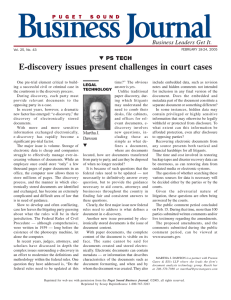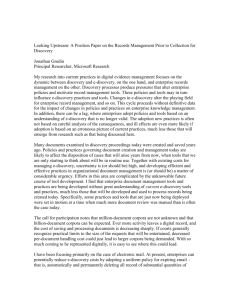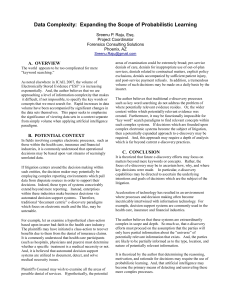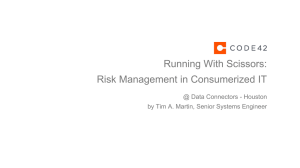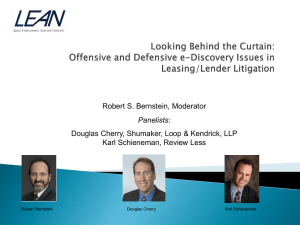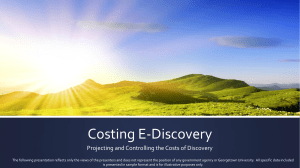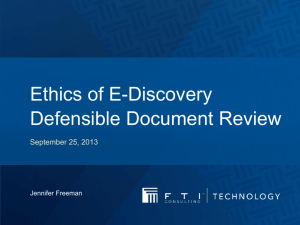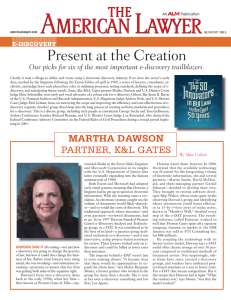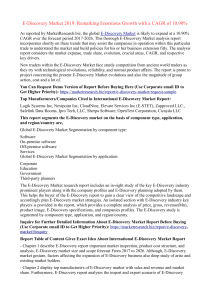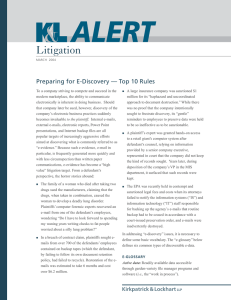The Huron Legal Institute Seattle Breakfast Briefing December 4, 2014 9am – 11:30am
advertisement
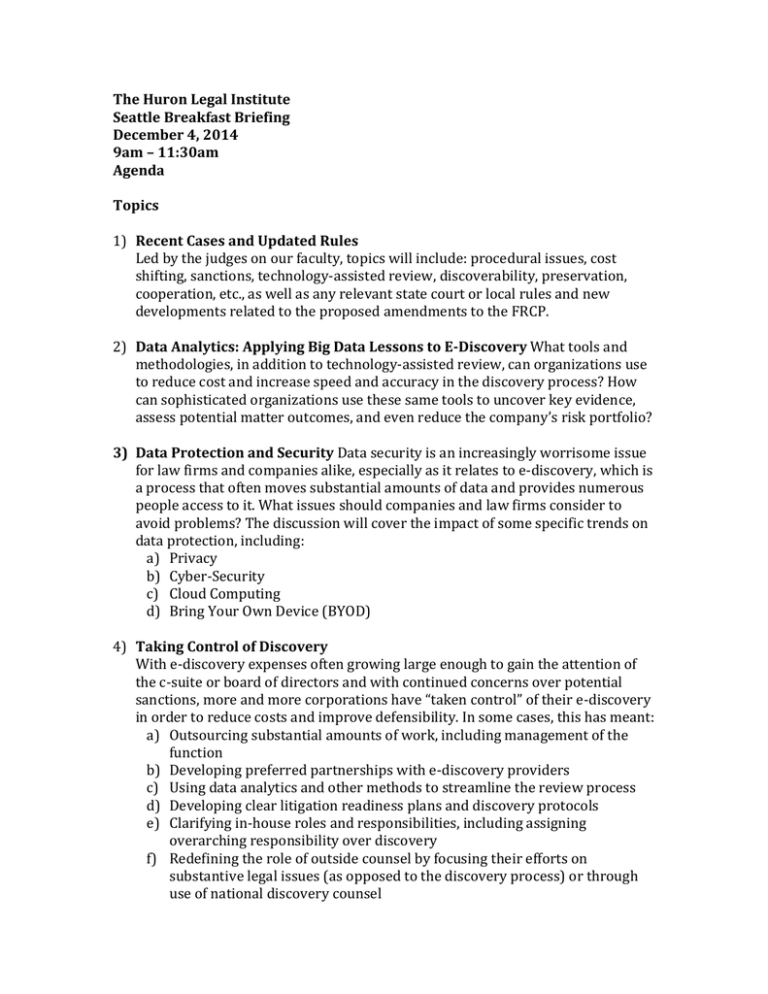
The Huron Legal Institute Seattle Breakfast Briefing December 4, 2014 9am – 11:30am Agenda Topics 1) Recent Cases and Updated Rules Led by the judges on our faculty, topics will include: procedural issues, cost shifting, sanctions, technology-assisted review, discoverability, preservation, cooperation, etc., as well as any relevant state court or local rules and new developments related to the proposed amendments to the FRCP. 2) Data Analytics: Applying Big Data Lessons to E-Discovery What tools and methodologies, in addition to technology-assisted review, can organizations use to reduce cost and increase speed and accuracy in the discovery process? How can sophisticated organizations use these same tools to uncover key evidence, assess potential matter outcomes, and even reduce the company’s risk portfolio? 3) Data Protection and Security Data security is an increasingly worrisome issue for law firms and companies alike, especially as it relates to e-discovery, which is a process that often moves substantial amounts of data and provides numerous people access to it. What issues should companies and law firms consider to avoid problems? The discussion will cover the impact of some specific trends on data protection, including: a) Privacy b) Cyber-Security c) Cloud Computing d) Bring Your Own Device (BYOD) 4) Taking Control of Discovery With e-discovery expenses often growing large enough to gain the attention of the c-suite or board of directors and with continued concerns over potential sanctions, more and more corporations have “taken control” of their e-discovery in order to reduce costs and improve defensibility. In some cases, this has meant: a) Outsourcing substantial amounts of work, including management of the function b) Developing preferred partnerships with e-discovery providers c) Using data analytics and other methods to streamline the review process d) Developing clear litigation readiness plans and discovery protocols e) Clarifying in-house roles and responsibilities, including assigning overarching responsibility over discovery f) Redefining the role of outside counsel by focusing their efforts on substantive legal issues (as opposed to the discovery process) or through use of national discovery counsel How can a company evaluate the best ways to manage its e-discovery spend? What have other companies done that has been successful? And how can law firms position themselves to deliver the most value? Confirmed Faculty Hon. Nathanael Cousins Magistrate Judge United States District Court for the Northern District of California Breena M. Roos Counsel Perkins Coie LLP Hon. Catherine Shaffer Superior Court Judge King County Superior Court, Washington Lynn Reilly Discovery Counsel T-Mobile Darin M. Sands Shareholder Lane Powell PC Ryan Wasell Discovery Counsel Weyerhaeuser Chris Marzetti Senior Director Huron Legal
